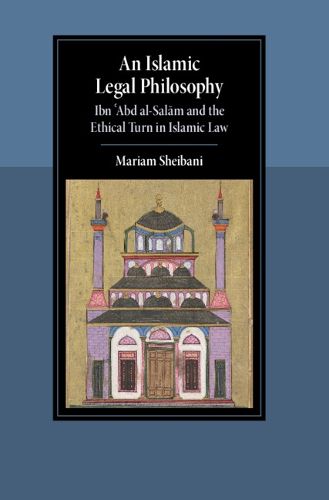Readings Newsletter
Become a Readings Member to make your shopping experience even easier.
Sign in or sign up for free!
You’re not far away from qualifying for FREE standard shipping within Australia
You’ve qualified for FREE standard shipping within Australia
The cart is loading…






While many studies of Islamic law have centered on the development of legal theory and substantive law, especially in their formative period of development, Mariam Sheibani instead argues that the rich legal history of the post-formative period and the Islamic legal philosophy that developed in it have been comparatively neglected. This innovative study traces the ethical turn in medieval Islamic legal philosophy through the pioneering work of the prominent jurist and legal philosopher Izz al-Din Ibn ?Abd al-Salam (d. 660/1262). Sheibani demonstrates how Ibn ?Abd al-Salam advanced a comprehensive analysis of the law's purposive and coherent rationality, articulated in a distinctive genre, with direct bearing on legal doctrine and social praxis. Ibn ?Abd al-Salam expanded on previous theological and legal reasoning, furthering two ideas developed by Khurasani Shafi?is: ma?la?a (human benefit) and qawa?id (legal maxims). He also sought to embody and deploy the teachings of his legal philosophy for socio-religious reform in Ayyubid Damascus and Cairo, breaking with the dominant formalism of legal practice. The new forms of legal reasoning and writing that Ibn ?Abd al-Salam developed would influence subsequent jurists from diverse legal schools and across regional traditions until the present day.
$9.00 standard shipping within Australia
FREE standard shipping within Australia for orders over $100.00
Express & International shipping calculated at checkout
Stock availability can be subject to change without notice. We recommend calling the shop or contacting our online team to check availability of low stock items. Please see our Shopping Online page for more details.
While many studies of Islamic law have centered on the development of legal theory and substantive law, especially in their formative period of development, Mariam Sheibani instead argues that the rich legal history of the post-formative period and the Islamic legal philosophy that developed in it have been comparatively neglected. This innovative study traces the ethical turn in medieval Islamic legal philosophy through the pioneering work of the prominent jurist and legal philosopher Izz al-Din Ibn ?Abd al-Salam (d. 660/1262). Sheibani demonstrates how Ibn ?Abd al-Salam advanced a comprehensive analysis of the law's purposive and coherent rationality, articulated in a distinctive genre, with direct bearing on legal doctrine and social praxis. Ibn ?Abd al-Salam expanded on previous theological and legal reasoning, furthering two ideas developed by Khurasani Shafi?is: ma?la?a (human benefit) and qawa?id (legal maxims). He also sought to embody and deploy the teachings of his legal philosophy for socio-religious reform in Ayyubid Damascus and Cairo, breaking with the dominant formalism of legal practice. The new forms of legal reasoning and writing that Ibn ?Abd al-Salam developed would influence subsequent jurists from diverse legal schools and across regional traditions until the present day.